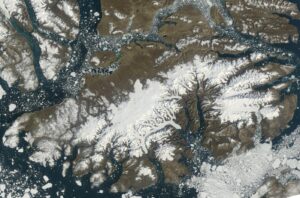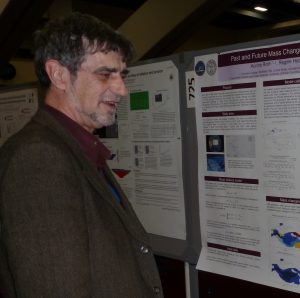

This working group aims to maintain and further develop the Randolph Glacier Inventory (RGI). The RGI is a globally complete dataset of glacier outlines with a ‘frozen’ time stamp for use primarily in global/regional scale glacier mass change assessments and modeling. The RGI is derived from glacier outlines from GLIMS (Global Land Ice Measurements from Space) and is also hosted at GLIMS.
Download the 2019 proposal to IACS here.
RGI tools: Topographic maps for each RGI glacier
This working group (WG) aims to assess regional glacier mass changes using various observation technologies with the ultimate goal to obtain new consensus estimates of global glacier mass changes and related uncertainties.
Download the 2019 proposal to IACS here.
RAGMAC outcome (webinars, posters, papers) here.
RAGMAC Kick-off meeting presentation (January 2020) including video here.

The award was established in memory of Graham Cogley (see obituary) and recognizes excellence in glaciological research by early career scientists. The award was initiated and is generously sponsored by the Cogley family for a period of 20 years, and is shared between IACS and the International Glaciological Society (IGS).

The main goal is to maintain and further update the RGI glacier inventory data set. Data and technical documentations can be downloaded here
With great sadness we inform that RGI WG co-chair Graham Cogley passed away in October 2018. See obituary
Download the 2013 proposal to IACS here and the proposal for a 1-year extension (2018-2019)
here
The IACS Early Career Scientist (ECS) Prize is a cash prize of €1000 awarded every two years to two early career scientists who have published the best scientific papers on a cryospheric subject as assessed by an independent evaluation committee. The objective of the prize is to recognize excellence in cryospheric science by honouring and promoting two ECS scientists, and to draw attention to the work of IACS.
Awardees must be IACS members by the time the award is received.
The IACS statutes and by-laws were approved in 2007 and revised in 2015. Further revisions were approved by the IUGG Council in September 2019 in particular to account for the individual membership introduced in 2017.
The Terms of Reference (ToR) define the operation of IACS Working Groups, Standing Groups and Joint Bodies.